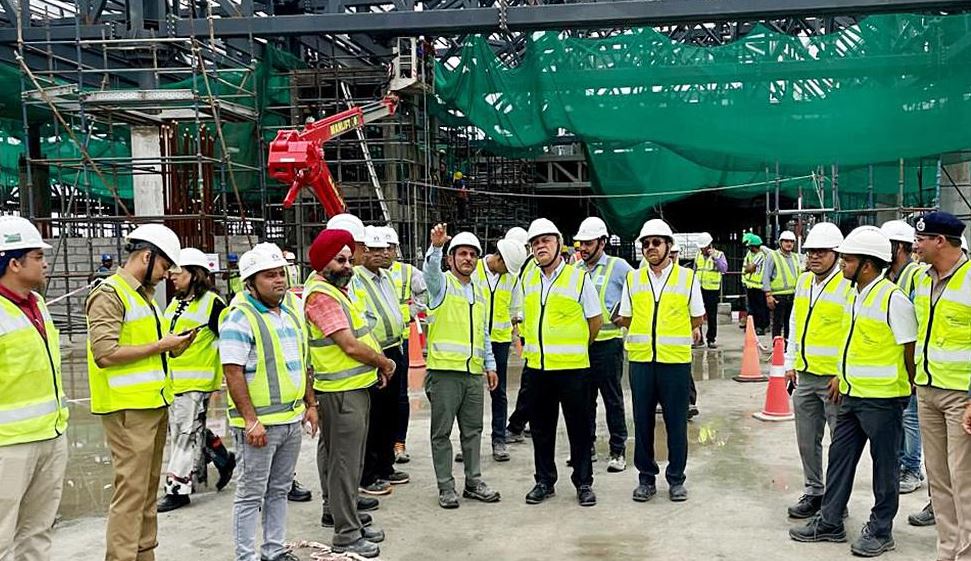Noida International Airport: A New Contender in Indian Aviation
The forthcoming Noida International Airport (NIA), slated to commence operations in April 2025, is poised to become a pivotal player in India’s aviation sector. As the second airport serving the bustling National Capital Region (NCR), NIA harbors ambitious aspirations to establish itself as a major international gateway. However, its pursuit of a separate “point-of-call” status and a revision of bilateral air service agreements has ignited a debate within the aviation industry and government circles.
The Crux of the Matter: Bilateral Rights and Point-of-Call Status
At the heart of NIA’s ambitions lies the quest for a separate point-of-call status, a designation that would enable international airlines to directly operate flights to and from the airport. Currently, Delhi holds the point-of-call status for the NCR, encompassing both the existing Indira Gandhi International Airport (IGI) and the forthcoming NIA. The government’s stance is that a point-of-call designation is granted to a city, not an individual airport, thereby negating the need for a separate status for NIA.
Additionally, NIA is seeking a revision of bilateral air service agreements, which govern the number of flights and seats that foreign airlines can operate to and from India. This request faces resistance from the government, which is keen on protecting the interests of domestic carriers like Air India, particularly on lucrative long-haul international routes.
Government’s Perspective: Protecting Domestic Carriers
The government’s cautious approach towards granting additional bilateral rights and a separate point-of-call status to NIA stems from its desire to nurture the growth of Indian carriers and establish India as a prominent transit hub. By limiting the expansion of foreign airlines, the government aims to ensure that Indian carriers have a fair share of the international passenger traffic, thereby bolstering their competitiveness and contributing to the overall development of the Indian aviation sector.
NIA’s Counterargument: Level Playing Field
NIA and its proponents argue that its unique position as a second airport for the NCR necessitates a distinct point-of-call status and revised bilateral rights. They contend that without these concessions, international airlines would be reluctant to shift capacity from the already established IGI Airport to NIA, hindering its growth and potential. Moreover, they emphasize the need for a “level playing field” and “equal access” to ensure fair competition and maximize the benefits for passengers and the aviation industry as a whole.
The Way Forward: A Delicate Balancing Act
The resolution of this impasse requires a delicate balancing act between the government’s desire to protect domestic carriers and NIA’s aspirations to become a major international gateway. The government could explore the possibility of granting NIA a limited point-of-call status or revising bilateral rights on a case-by-case basis, taking into account factors such as the presence of the Indian diaspora in specific countries, the future plans of Indian carriers, and the principle of reciprocity.
Conclusion: A Catalyst for Growth or a Contested Space?
The launch of Noida International Airport represents a significant milestone in India’s aviation journey. However, its success hinges on its ability to secure a favorable policy environment that allows it to compete effectively in the global aviation market. The ongoing debate over point-of-call status and bilateral rights underscores the complexities of balancing national interests with the imperatives of economic growth and development. The outcome of this debate will shape the future of NIA and its role in India’s aviation landscape.
Key Takeaways:
| Key Point | Implication |
|---|---|
| Noida International Airport seeks separate point-of-call status and revised bilateral rights. | This would enable international airlines to directly operate flights to and from the airport. |
| The government is reluctant to grant these concessions. | The government prioritizes the growth of domestic carriers and existing hubs. |
| The airport’s proponents argue for a level playing field. | They believe that without these concessions, NIA’s growth and potential will be hindered. |
| The outcome of this debate will shape the future of NIA. | It will determine its role in India’s aviation landscape and its ability to compete globally. |
| The situation underscores the complexities of balancing national interests with economic growth. | The government must navigate this challenge to ensure a thriving aviation sector. |
Summary: Noida International Airport’s pursuit of a separate point-of-call status and revised bilateral rights faces hurdles amidst government policies favoring domestic carriers. The outcome of this debate will significantly impact the airport’s future and its role in India’s aviation landscape.
Soumya Smruti Sahoo is a seasoned journalist with extensive experience in both international and Indian news writing. With a sharp analytical mind and a dedication to uncovering the truth, Soumya has built a reputation for delivering in-depth, well-researched articles that provide readers with a clear understanding of complex global and domestic issues. Her work reflects a deep commitment to journalistic integrity, making her a trusted source for accurate and insightful news coverage.



